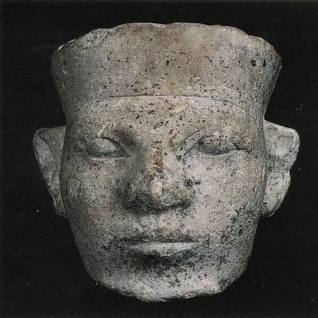
[:en]
It seems as if no one in Africa recognises the importance of 1917 for the history of Africa. Without 1917 the fate of Africa in the 20th Century would have been much different. Europe and America had imposed an arms embargo against Africa and the new automated weapons had allowed swift suppression of African liberties. 1917 saw the breakdown of that embargo and the possibility of struggles for independence. Many African historians have been unable to understand the speed of decolonisation or to be frank the speed of colonisation. European historians had often fantasised that Europeans could have colonised Africa at any time despite emphatic records to the contrary. The defeat of British, French and Italian arms where Africans were equivalently armed is conclusive. The Brussels Treaty of 1890 had been in discussions for many years and under the pretence of being a provision for the abolition of slavery banned the sale of modern weapons to African countries. Its formal signing AFTER the Treaty of Berlin has misled many African historians as to its significance. The underlying ‘agreement’ necessarily pre-dated the Berlin conference and the Treaty merely codified an already established understanding that was a pre-condition for the Treaty of Berlin. This European habit, endorsed by the Pope, of establishing arms embargoes goes back at least to Romanus Pontifex 1454 where it was forbidden to supply ‘iron instruments, wood to be used for construction, cordage, ships, or any kinds of armor,’ to non-Europeans. (note 1)
If the arms embargo made the scramble for Africa both possible and necessary (embargoes tend to get circumvented over time) then the emergence of alternative sources of modern weapons marked its inevitable collapse.
Some Nigerian historians have taken to complete misunderstanding and have criticised those countries that waged war for independence while praising Nigeria for peacefully negotiating the transition. This betrays a gross misunderstanding of the global dynamic. After World War 2 , the former colonial powers sought to re-install themselves with great violence and the wars in Algeria, Malaysia, Viet Nam and Kenya ensued. The European empires were exercises in deception and bluffs. Vastly over stretched they relied on brutally suppressing any individual uprising by assembling troops from other parts of the empire and discouraging further protests by exemplary savagery – the genital mutilation of prisoners by British troops in Kenya is only one example. If too many uprisings happened at the same time the bluff would be called to disastrous consequences. On the other hand the poverty of Europe after WW2 created the need for super exploitation. The colonial uprisings with the potential of significant arms from Russia made the strategic calculation fairly clear. This together with the US wish to open markets and dismember the European empires gave the major European powers little scope but to effect a dignified retreat. After WW2 Russia was devastated and had little appetite for adventures but the strategic possibility stared European generals in the face. Portugal whose elite refused to face reality endured a series of wars that bled the country such that the welfare indices in metropolitan Portugal were in some areas worse than those in the colonies – eventually some young army officers brought this farce to an end. The wars of liberation in Africa had led to a social revolution in Portugal. On the other hand the Algerian war fractured France but not to breaking point. In Viet Nam after Dien Ben Phu the French officer class came to realise they were fighting on behalf of USA (having transferred so much over to US for funds to fight the war). The French adroitly withdrew to let the Americans fight their own war.
The peaceful transition in Nigeria and many other countries of Africa was a result of the wars of liberation in other parts of the world and thus was a direct consequence of 1917.
None of the successful African wars of liberation can be conceived of without 1917. Guinea Bissau, Angola, Mozambique and South Africa were all dependent on modern weaponry. The Cuban role in South Africa was decisive for the collapse of apartheid and that was entirely based on advanced weapons from Russia.
Just as the Viet Nam war is inconceivable without arms from USSR, so also was the independence of China. We must recognise the independence of Africa would be inconceivable without 1917.
There is an absurd attempt to confuse this issue by drawing matters into an ideological debate about the pros and cons of socialism, communism and command economies. That is all beside the point. An independence movement without the possibility of armed struggle is still born.
.
Calvert 22, a think tank with Eastern European focus, held a series of meetings on 1917 and its impact, and I attended one of them. Speakers included: Craig Brandist ,Professor of Cultural Theory and Intellectual History at the University of Sheffield and director of the Bakhtin Centre, Jeremy Hicks is a Reader in Russian Culture and Film at Queen Mary University of London. Katie McElvanney is an AHRC collaborative doctoral candidate at Queen Mary University of London and the British Library. Even they ignored the role of 1917 in the liberation of a great part of the world, but to be fair once I reminded them of this and that what was required today was to look at 1917 from our present vantage point with our present knowledge rather than seeking to relive or justify it they were much heartened. In fact they took the point and made some very profound observations about the agendas of the early Bolshevists, much of which has become mainstream today and yet unacknowledged.
1917 is a most important date in the history of Africa.
Notes
Note 1: The Bull Romanus Pontifex 1454
https://en.wikipedia.org/wiki/Romanus_Pontifex
[:]

